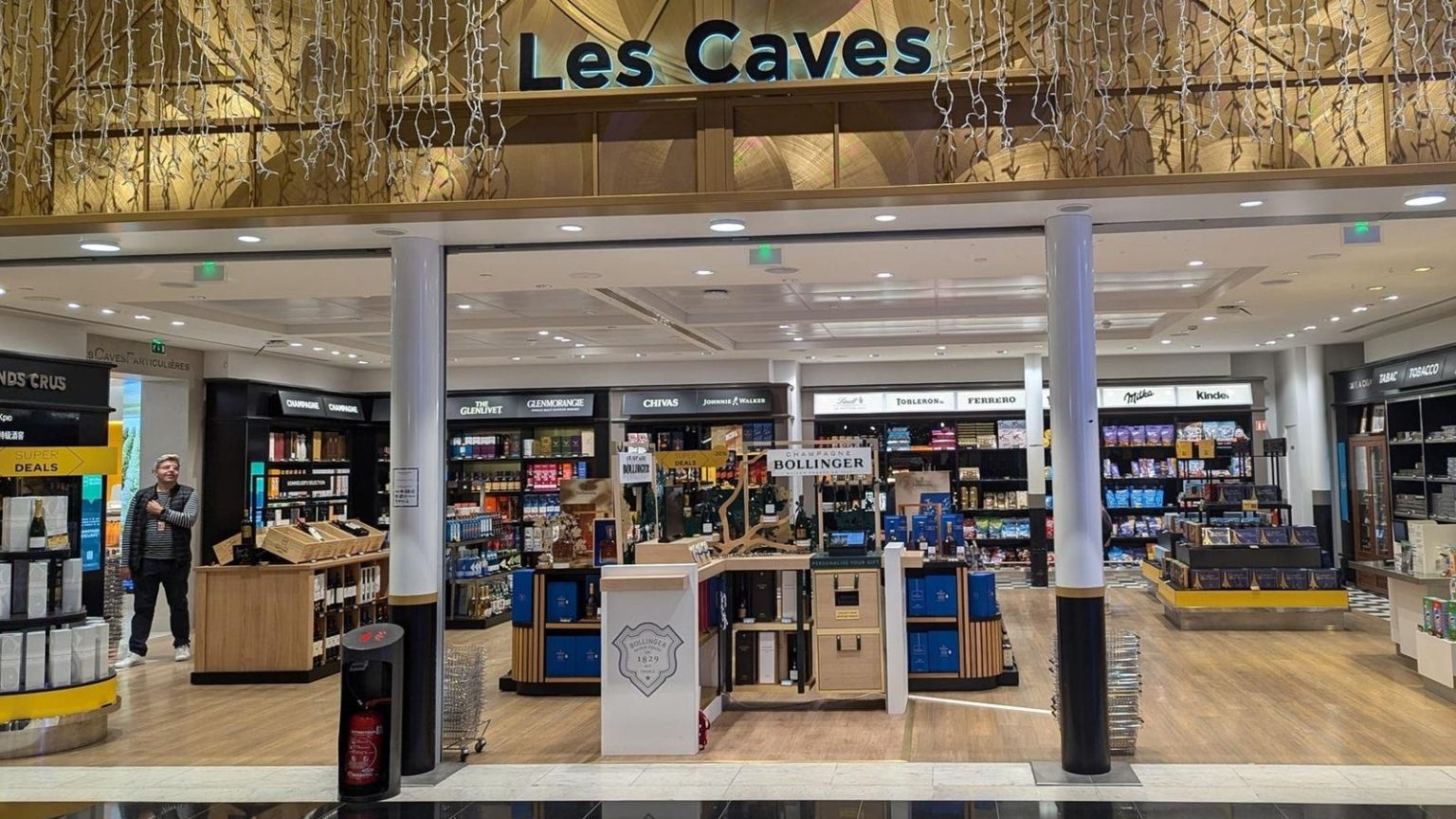French media-to-retail titan Lagardère Group* saw its share price close the week at a 2025 high of €21.90 up almost 10% on Thursday thanks to a strong sales uplift at its biggest division, Lagardère Travel Retail, the main store operator at Charles de Gaulle Airport in Paris. The business is, however, considering restructuring its North Asia operations.
The duty-free business—which is most active in European airports but also owns Paradies in the U.S. after a 2015 acquisition—saw its revenue jump by almost 16% (12.5% like-for-like) to €5.8 billion ($6.1 billion). Recurring EBIT reached an all-time high of €305 million ($320 million), surging by 24.5%.
The EBIT result allowed the travel retail business to catch up with its sister division, Lagardère Publishing which generated €310 million but grew more slowly at 3% year-over-year. The more balanced picture and all-around growth have encouraged investors despite the higher capital expenditure needed for the travel retail business to ensure future organic growth.
The travel retail result helped push Lagardère Group revenue to €8.9 billion last year, up 10.6% (8.5% like-for-like). Lagardère’s CEO Arnaud Lagardère said in a statement: “Travel retail is benefiting fully from the growth in air traffic thanks to its three complementary businesses—travel essentials, duty-free and fashion, and dining.”
Lagardère Travel Retail has also expanded its operations through acquisitions such as Tastes on the Fly in the United States by Paradies, and airport concession wins including a big one at Amsterdam Schiphol which starts on 1 May, Düsseldorf in Germany, Atlanta, and Nice. The division now has more than 5,000 points of sale around the world.
In an investor call, Grégoire Castaing assistant managing director of Lagardère Group since June 2024 and its financial head, said that travel retail had seen “another remarkable year” but acknowledged that Asia Pacific was still problematic.
Asia-Pacific downside for Lagardère
The EMEA region (Europe, Middle East, and Africa) excluding France, saw growth up 20% on the back of strong passenger traffic increases especially in Italy at Rome’s Fiumicino Airport together with concept refreshes and new contracts. France grew by 15% helped by the success of a number of joint ventures such as Extime Duty Free with Group ADP at its main air gateways to Paris.
The Americas were less dynamic with 6% growth while Asia-Pacific was down by 13% due to weak consumer demand as a direct result of the slowdown in the Chinese economy which led to store closures in North Asia. Lagardère has been renegotiating its contracts in the mainland China market because of poor performances there. Castaing said: “The situation in China is affecting several players and (for) many, more than us.”
Lagardère momentum continues in 2025
During the investor call, Lagardère Travel Retail CEO Dag Rasmussen said that 2025 had started well. In January, usually a weak month, like-for-like sales were up 9%. “The momentum is very good and more generally we will have the full effect of some openings like Romania, but also the start of operations at Amsterdam Schiphol.”
The Amsterdam joint venture contract is a potential game-changer as it runs for 10 years at one of the world’s busiest international airports. This offers scope for a considerable sales uplift for Lagardère starting from the second quarter.
Meanwhile in Asia, a review is underway. “We are considering restructuring our North Asian operation but the costs have been accounted for in 2024,” Rasmussen added, without detailing what changes are coming. North Asia refers to China, but in the wider Asia-Pacific region several structural rejigs by rivals such as Gebr. Heinemann are now underway.
Fielding a question about driving up Lagardère Travel Retail’s operating profit margin even further—it has risen from 3.5% in 2022 to 5.3% last year—the CEO was cautious. “We posted a record high of 5.3% in 2024. We could go somewhat higher, but not significantly. We have big new openings which are costly and sometimes it is also a question of tenders so we have come to a level we consider as stable,” he said.
Read the full article here





